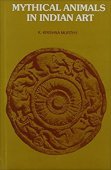Hayanana, Hayānana, Haya-anana: 3 definitions
Introduction:
Hayanana means something in Hinduism, Sanskrit. If you want to know the exact meaning, history, etymology or English translation of this term then check out the descriptions on this page. Add your comment or reference to a book if you want to contribute to this summary article.
In Hinduism
Purana and Itihasa (epic history)
Source: Cologne Digital Sanskrit Dictionaries: The Purana IndexHayānana (हयानन).—Is Hayagrīva.*
- * Brahmāṇḍa-purāṇa IV. 6. 1.

The Purana (पुराण, purāṇas) refers to Sanskrit literature preserving ancient India’s vast cultural history, including historical legends, religious ceremonies, various arts and sciences. The eighteen mahapuranas total over 400,000 shlokas (metrical couplets) and date to at least several centuries BCE.
Shaktism (Shakta philosophy)
Source: Google Books: ManthanabhairavatantramHayānanā (हयानना) refers to one of the eight Yoginīs (yoginī-aṣṭaka) associated with Nādapīṭha (identified with Kulūta), according to the Manthānabhairavatantra, a vast sprawling work that belongs to a corpus of Tantric texts concerned with the worship of the goddess Kubjikā.—[...] The eight Yoginīs (yoginyaṣṭaka): Vīrabhadrā, Kālī, Kapālī, Vikṛtā, Kroṣṭāṅgī, Vāmabhadrā, Vāyuvegā, Hayānanā.—(Note the variant Bhayānanā)

Shakta (शाक्त, śākta) or Shaktism (śāktism) represents a tradition of Hinduism where the Goddess (Devi) is revered and worshipped. Shakta literature includes a range of scriptures, including various Agamas and Tantras, although its roots may be traced back to the Vedas.
Languages of India and abroad
Sanskrit dictionary
Source: Cologne Digital Sanskrit Dictionaries: Monier-Williams Sanskrit-English DictionaryHayānanā (हयानना):—[from haya] f. ‘horse-faced’, Name of a Yoginī, [Hemādri’s Caturvarga-cintāmaṇi]
Sanskrit, also spelled संस्कृतम् (saṃskṛtam), is an ancient language of India commonly seen as the grandmother of the Indo-European language family (even English!). Closely allied with Prakrit and Pali, Sanskrit is more exhaustive in both grammar and terms and has the most extensive collection of literature in the world, greatly surpassing its sister-languages Greek and Latin.
See also (Relevant definitions)
Ends with: Bhayanana, Khayanana.
Full-text: Bhayanana, Livila, Vamabhadra, Kroshtangi, Kroshtuki, Virabhadra, Vayuvega, Vikara, Vikrita, Kali, Kapalin.
Relevant text
Search found 5 books and stories containing Hayanana, Hayānana, Haya-anana, Hayānanā, Haya-ānanā, Haya-ānana; (plurals include: Hayananas, Hayānanas, ananas, Hayānanās, ānanās, ānanas). You can also click to the full overview containing English textual excerpts. Below are direct links for the most relevant articles:
Cidgaganacandrika (study) (by S. Mahalakshmi)
Verse 201-202 [Kalpanā-Dhāraṇā-Kālidevata Tattvas] < [Chapter 4 - Fourth Vimarśa]
The Agni Purana (by N. Gangadharan)
Chapter 52 - Characteristics of images of different forms of goddesses
Ramayana of Valmiki (by Hari Prasad Shastri)
Chapter 74 - Hanuman goes to the Mountain of Medicinal Herbs < [Book 6 - Yuddha-kanda]
Lalitopakhyana (Lalita Mahatmya) (by G.V. Tagare)
The Skanda Purana (by G. V. Tagare)
Chapter 4 - The Extent of Prabhāsa Kṣetra < [Section 1 - Prabhāsa-kṣetra-māhātmya]
Related products
